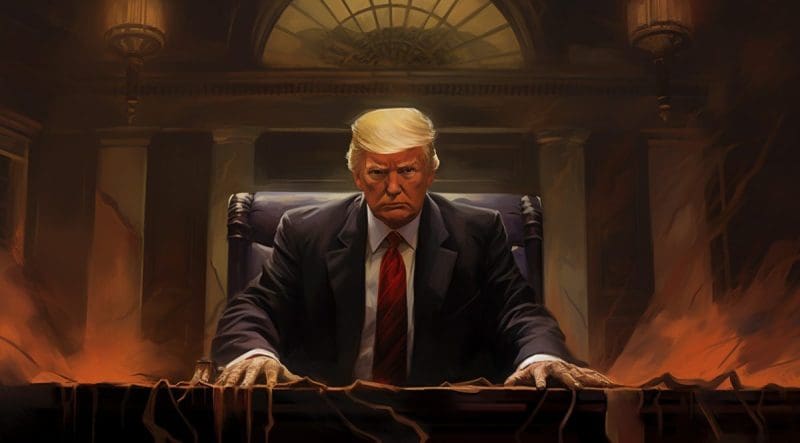
Former President Donald Trump has doubled down on his recent remarks about “the enemy within,” intensifying his attacks against political adversaries, including media outlets and key political figures.
Trump’s Renewed Offensive on Domestic “Enemies”
Speaking at a campaign rally in Arizona over the weekend, Trump insisted that “dangerous internal enemies” are attempting to destroy America from within, fueling a narrative that pits him and his supporters against a broad coalition of what he calls corrupt establishment figures.
Trump’s renewed comments come amid rising scrutiny and ongoing investigations into his conduct, including multiple legal cases and indictments. His rhetoric was markedly more aggressive this time, as he targeted not only Democratic political leaders but also members of the media, whom he labeled “propaganda agents” working against American interests. Trump’s remarks have been seen by many as an attempt to delegitimize criticism of his legal and political actions.
Direct Attacks on the Media
During his speech, Trump specifically called out mainstream media organizations, accusing them of being complicit in a “cover-up” designed to tarnish his image and support the current administration. “The fake news media is the enemy of the American people,” Trump told the crowd, who responded with loud chants in agreement.
This isn’t the first time Trump has attacked the media, but his language in this latest speech seemed to encourage more direct confrontation. Trump argued that the press is actively colluding with his political enemies to prevent him from running a successful 2024 campaign. He added that “they want to destroy everything we stand for — freedom, prosperity, and truth.”
Targeting Political Rivals
Trump also directed his ire toward his political rivals, including prominent Democratic leaders and even some Republicans who have criticized him. He claimed that these individuals are working as “domestic enemies” trying to undermine American sovereignty and independence.
Among his targets were prominent Democratic leaders Adam Schiff and Nancy Pelosi. Trump accused Schiff of being a “fraud” who has spent years promoting “lies and hoaxes” against him. He also claimed that Nancy Pelosi was leading an effort to destabilize the nation, accusing her of using her influence to spread misinformation and to work against the interests of the American people. The crowd responded with boos and chants, echoing Trump’s sentiments against the two high-profile Democrats.
Trump argued that these political figures are part of an orchestrated effort to bring him down and ultimately weaken America from within. He insisted that “they’ve been trying to destroy our great country, and they won’t stop until we stand up and fight back.”
Reaction and Concerns Over Escalation
Trump’s latest comments have alarmed many political observers, with some expressing concerns about the potential incitement of violence. His remarks about the “enemy within” have been interpreted as a veiled threat against journalists and political opponents. Critics have pointed out that such rhetoric may lead to an increased risk of politically motivated violence, given the current polarized atmosphere in the United States.
White House spokesperson Karine Jean-Pierre condemned Trump’s remarks, emphasizing that words matter and that such dangerous rhetoric should have no place in political discourse. “This kind of divisive language undermines our democratic institutions and puts people at risk,” she said.
Support from Loyalists
Despite these concerns, Trump’s supporters appear galvanized by his message, seeing his rhetoric as a fight against an entrenched political class that has repeatedly disregarded the needs of the American people. At the Arizona rally, attendees echoed Trump’s sentiments, holding signs with slogans like “Save America from the Deep State” and chanting against the media.
Broader Implications
Trump’s intensifying rhetoric against political enemies and the media has prompted questions about how far he may push his narrative as he gears up for the upcoming election. His words may serve to energize his base, but they also risk exacerbating tensions across the country. Analysts suggest that Trump’s strategy appears aimed at sowing distrust toward traditional institutions, thereby creating a framework where any future electoral defeat could again be portrayed as illegitimate.
With Trump continuing to face numerous legal challenges, his speeches seem to reflect a strategy focused on consolidating his base and turning every criticism into proof of a grand conspiracy against him and his supporters. The implications of this rhetoric are significant as America prepares for another highly contentious election season.
